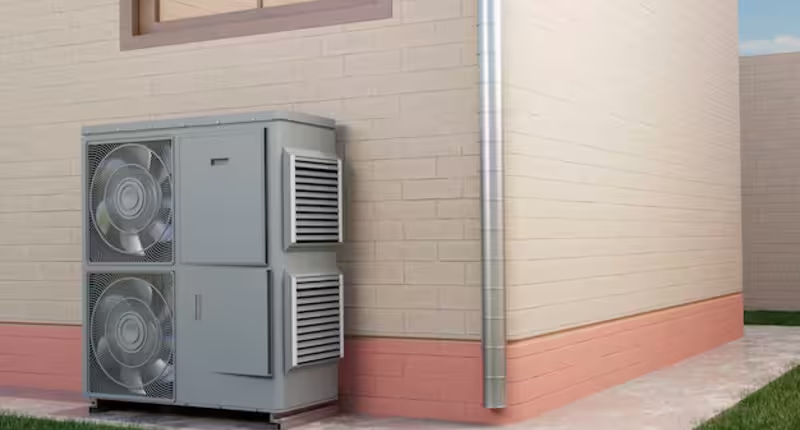Output
Essential Concepts
Analyze the advantages and disadvantages of utilizing heat pumps for heating.
Learn about the different types of heat pumps and their purposes.
Learn about the potential savings and additional revenue earned from the energy efficiency.
What Are Heat Pumps?
Heat pumps are a type of mechanical device that can be used both for heating and cooling homes because they transfer heat instead of producing it. They operate by transferring heated air into the building during the winter season, and transferring hotter air out when it is warm outside. Because of these reasons, they are cost-effective and eco-friendly compared to conventional heating systems. However, these units come in different types such as air-source and geothermal, so the particular model that will best meet the needs and the climate of the area can be selected by the owner.
Over time, heat pumps may lose efficiency and require upgrades. When considering a heat pump replacement Raleigh homeowners should look for reliable service providers like AnyDay Heating & Cooling, which offers expert installation and maintenance. Improving an outdated unit to a contemporary model can boost energy efficiency and lower utility expenses. Consistent maintenance also prolongs the system’s lifespan, maintaining a comfortable living space throughout the year
Forms of Heat Pumps
It is important to distinguish different types of pumps in order to select the best system for a particular house. Each category of these pumps has specific advantages and requirements that meet the needs of different environments.
Air Source Heat Pumps
Air Source Heat Pumps (ASHPs) are one of the most common forms of pumps and is widely available in the market. ASHPs function by extracting heat energy from the air and transferring it within the premises. With these advanced technology systems, they can perform well even at lower outdoor temperatures. However, some variations do exist in the system’s efficiency depending on where it is placed and the model. In regions with moderate weather, ASHPs lower energy cost while providing efficient heating and cooling services throughout the year.
Geothermal or ground-source heat pumps
Ground source or geothermal pumps are unmatched in effectiveness and dependability, making them an attractive option. These types of pumps harness balanced temperatures from the ground to transfer heat which is a great source of energy. However, they have a higher cost of installation because they have to be mounted to underground systems. Over time, these pumps do save money and are more sustainable in the long run. This type of heat pump is very economical in areas of highly variable temperatures because this pump keeps working regardless of the outside temperature.
Water Source Heat Pumps
Water source pumps can extract energy
Benefits of Using Heat Pumps
Heat pumps are praised for their capacity to reduce energy expenses and are particularly popular among those committed to sustainable living. They can provide as much as three times the thermal energy compared to the electrical energy they use—this high level of efficiency results in decreased utility costs and a minor impact on the environment. Furthermore, pumps ensure consistent and dependable temperature regulation, making them a practical choice for achieving indoor comfort throughout the entire year.
Potential Drawbacks to Consider
Although pumps offer many benefits, potential purchasers should be aware of possible disadvantages. The upfront installation expense may exceed conventional heating systems, especially geothermal installations. Nevertheless, these expenses can frequently be balanced out by long-term energy savings. Moreover, the efficiency of air source pumps can diminish in areas with extended periods of extreme cold unless they are supplemented with a secondary heating solution or a model specifically designed for such conditions.
Selecting the Appropriate Heat Pump for Your Residence
Choosing the appropriate heat involves thoughtful evaluation of factors like your local climate, financial constraints, and your home’s energy requirements. Homeowners should weigh the initial installation costs against potential long-term savings. Consulting with an experienced HVAC professional can be beneficial, providing tailored advice that aligns with your household’s unique needs. Additionally, understanding energy efficiency ratings and the specific capabilities of different pump models will aid in making an informed decision.
Conclusion: Is a Heat Pump Right for You?
Installing a heat pump is a crucial choice shaped by several elements, such as climate suitability, potential long-term energy savings, and the upfront costs involved. Pumps represent a compelling choice for individuals dedicated to enhancing home energy efficiency and lowering their environmental footprint. Given their capability to deliver efficient heating and cooling and possible financial advantages, heat are appealing to contemporary homeowners looking for sustainable options.
Contact Us For More information

